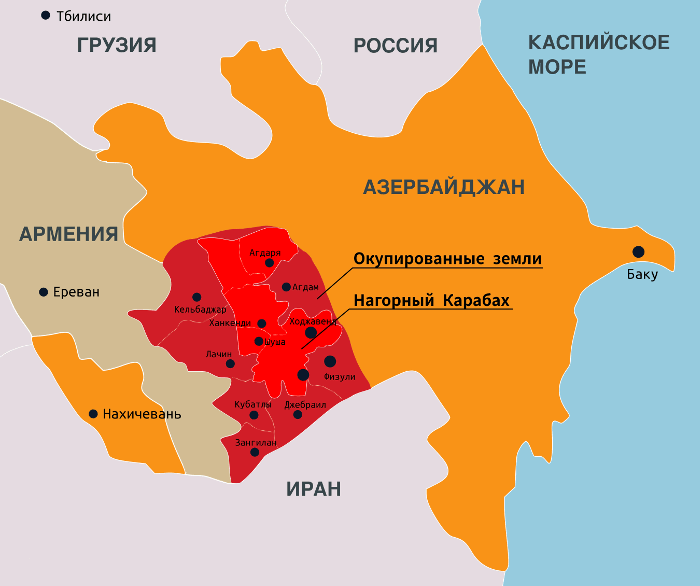Yesterday's Vienna meeting of the Presidents of Azerbaijan and Armenia on the settlement in Nagorno-Karabakh mediated by the foreign ministers of the OSCE Minsk Group co-chair countries should be followed by concrete steps to resolve the conflict, otherwise all the efforts made for the resumption of peace negotiations, will come to naught, MP of the Azerbaijani Majlis Rasim Musabekov and political scientist Rovshan Ibrahimov said, speaking to Vestnik Kavkaza.
Musabekov noted that agreements reached at yesterday's talks between Ilham Aliyev and Serzh Sargsyan concerned only the preconditions for the settlement of the Nagorno-Karabakh conflict, not the settlement itself. "First and foremost, it is a cease-fire and there is some progress in this respect through the OSCE special representative's office. Most likely, the office will be strengthened in order to ensure monitoring at the appropriate level. Then, an agreement to start negotiations on a comprehensive agreement in June is important. If the Presidents meet in June, the OSCE Minsk Group co-chairs and the Foreign Ministers of Armenia and Azerbaijan should work actively to offer the agreed document for consideration," the MP said.
According to Rovshan Ibrahimov, a new page in the Nagorno-Karabakh conflict was opened yesterday. "The important thing is that the meeting was held just a few weeks after a four-day war in early April, and this signifies a new milestone in the negotiation process. More so, the Armenian side earlier stated that it would not sit down at the negotiating table until its conditions were met. After changing the status quo the meeting in Vienna is the beginning of a new stage. Of course, we shouldn't expect any results at the first meeting, but it is the start of a larger negotiation process," believes Ibrahimov.
Both experts pointed out the importance of real negotiations. "If this meeting will be followed by substantial negotiations, not by an imitation for the sake of preservation of the existing situation, they will be supported and agreements reached implemented. At the same time, I cannot guarantee that forthcoming meetings will be constructive, and even can assume that everything will return to where it was before and we will see new escalation of tensions on the contact line. Illusions that if April outbreak [of hostilities] was ‘extinguished’, Azerbaijan will make peace with the occupation of its territories, are absolutely groundless," Rasim Musabekov warned.
Rovshan Ibrahimov also believes it is possible that we might see new fighting if there is no progress in the negotiations. "While the Armenian side continues to violate the ceasefire, Azerbaijan’s response will be a resolute one. In the best case scenario at this time we can talk about an agreement to reduce the number of exchanges of fire," the expert said.
The experts noted high interest of international mediators in the activation of the negotiations between Azerbaijan and Armenia. "I was recently in Germany and saw that people there show interest in promoting a settlement of the conflict. If we could put these efforts together, there will be a chance for a progress in the settlement process," Rasim Musabekov hopes.
"After the round of talks in Vienna mediated by the foreign ministers of the OSCE Minsk Group co-chair countries, we should expect regular meetings at least at the level of the Foreign Ministers of Azerbaijan and Armenia. The process was resumed, and if we are talking about the conflict settlement through negotiations, then the process will continue within the framework of the OSCE Minsk Group," Rovshan Ibrahimov suggested.
The effectiveness of the Vienna meeting will depend how the diplomatic process will develop in the future. "Now the sides agreed to respect the armistice agreement reached in 1994-1995, which includes monitoring and investigation of incidents in the conflict zone. However, any agreements related to the armistice matter only if they are accompanied by intense negotiations to resolve at least the military component of the conflict – a withdrawal of the army from the occupied Azerbaijani territories," Rasim Musabekov concluded.
"I don't expect any radical changes. A new status quo was formed, and Armenia wants to keep it in at least this form. At the same time, if negotiations yield no relusts, Azerbaijan reserves the right to use force in the absence of any other way and turn to the military solution of the conflict," Rovshan Ibrahimov added.







